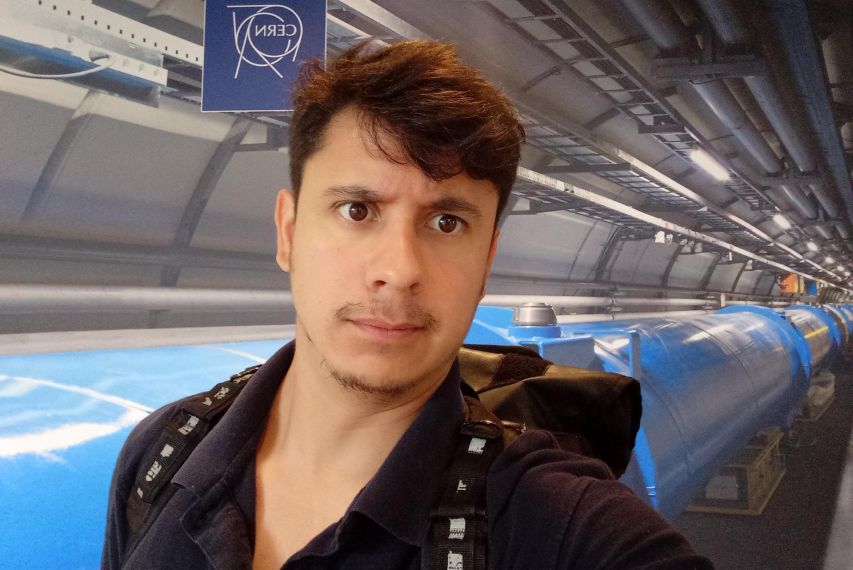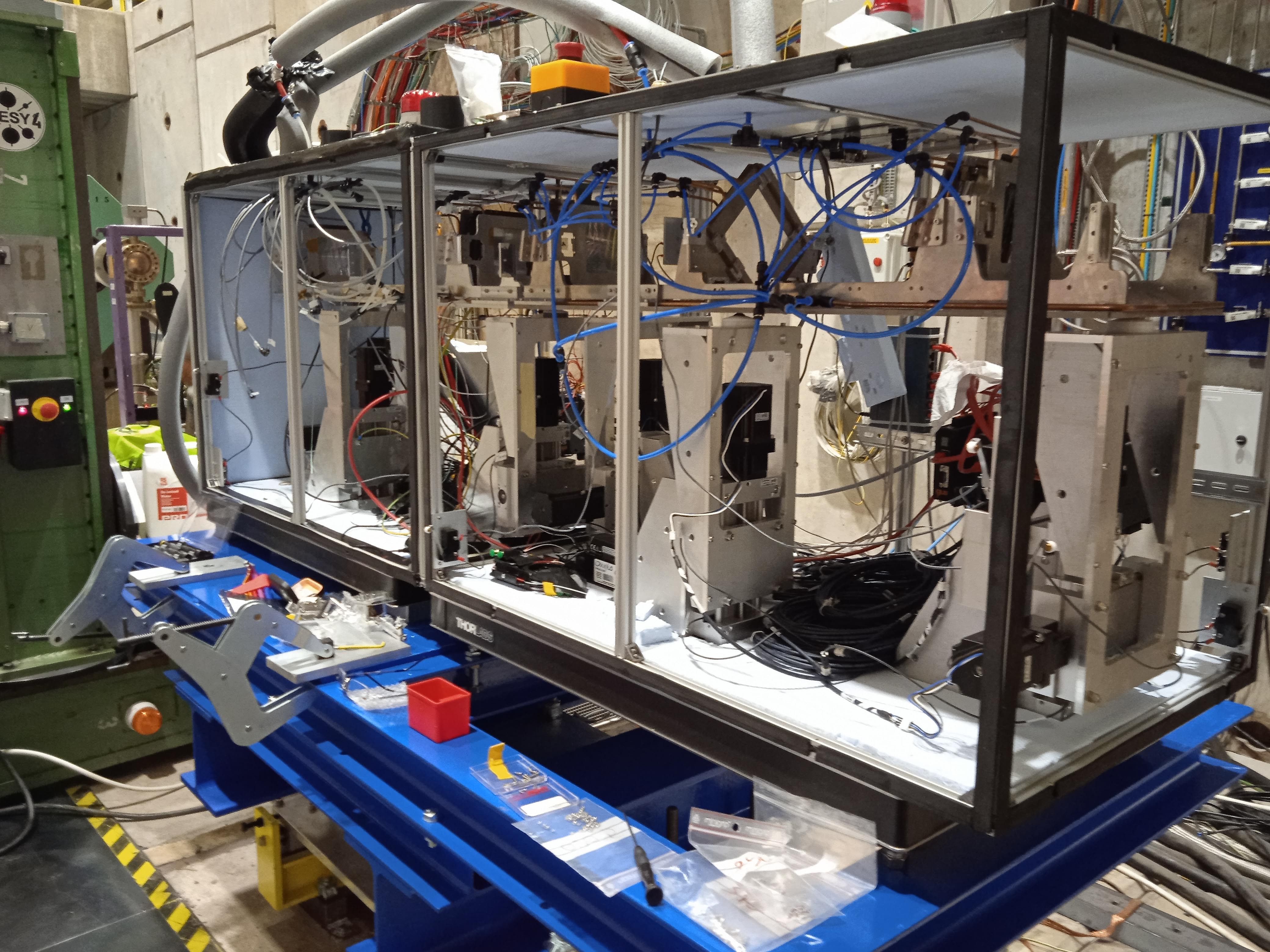You recently returned from a research trip to Switzerland. Can you tell us about the project you've been working on there?
Gutierrez: I am currently a member of the MUonE collaboration whose experiment is based at the scientific facility CERN in Geneva, Switzerland. What we are looking for is to measure a fundamental property of the elementary particle known as the muon. That property is called the magnetic moment. Elementary particles have several properties such as electrical charge, spin, magnetic moment, etc. All of those properties are compared with the theory we have called the standard model, but there is a current issue with the muon. The magnetic moment of the muon does not agree with our predictions. We are trying to re-measure that value to see if we made a mistake in the past measurements or if we need a better theory that describes this measurement.






